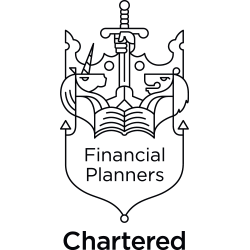The pros and cons of overpaying your mortgage
If you have spare cash savings or disposable income at the moment, you might be tempted to use that money to overpay your mortgage.
Your home is a huge financial commitment and there are many advantages to paying extra amounts if you can afford to. There are downsides too though, which means it won’t be right for everyone.
Here’s your guide to the pros and cons of using savings to overpay your mortgage.
The benefits of overpaying a mortgage
- You’ll pay off your mortgage sooner
One of the main benefits of overpaying your mortgage is that you’ll pay it off sooner. Using cash savings as lump sum overpayments means you can keep your monthly payments at their current level, but still see your mortgage paid off early.
You’ll need to be sure your mortgage is the best place for the money (we’ll look at other potential uses for it later) and that you don’t overpay by too much. We can help you make that decision and help with any calculations you need to make.
If your overpayments are managed correctly, you’ll pay off your mortgage sooner than expected. This will free up a monthly amount that you can use to help maintain your desired lifestyle in retirement or save toward one-off luxuries such as travel.
- You’ll own your home
Another obvious advantage of overpaying your mortgage is that the sooner you pay it off, the sooner you’ll own your home. This brings financial security and stability, as well as peace of mind.
As one of the biggest financial commitments any of us make in our lives, being free of mortgage debt could be an enormous relief, allowing you to better enjoy your retirement.
- It might be the best place for your money
With the Bank of England base rate at a historic low, topping off a decade of challenging times for savers, you might find that large cash holdings are losing value in real terms.
If the interest rate on your savings account is less than the interest you are paying on your mortgage, you might be better off using that money to make mortgage overpayments.
To put it simply, if you’ve got £10,000 left on your mortgage with a 2% interest rate, your annual interest cost is £200. If you have £10,000 in a savings account earning just 0.5%, your annual interest earned is £50. Use your savings to pay off your mortgage debt and you are £150 better off.
You’ll need to be careful about the amount you pay and be sure you don’t incur charges that outweigh the benefit. More on that later.
Reasons you might not want to overpay your mortgage
- The importance of an emergency fund
Although interest rates on savings accounts are currently low, there are plusses to having money held in cash.
Cash savings are easily accessible so you know your money will be there when you need it. Your savings will also be protected by the Financial Services Compensation Scheme (FSCS), up to a maximum of £85,000.
We recommend keeping around three months’ earnings aside for use in emergencies, such as redundancy, or an accident or illness that stops you from working.
If you have some savings in place, but nothing specifically set aside for emergencies, use the money to build your rainy day fund first.
- You have other more expensive debts to pay off first
If you have other debt, such as credit cards, you might find that they have a higher interest rate than your mortgage.
According to Which?, the average credit card APR is typically 23%, whereas the average interest on a two-year fixed-rate mortgage is 2.53%.
Make the best use of your cash savings by paying off the highest interest debt first. If this isn’t your mortgage, hold off for now or speak to us.
- You’ll need to factor in early repayment charges (ERC)
If you repay your mortgage – or overpay by more than your lender allows – during your deal’s early repayment period, an early repayment charge (ERC) will likely apply.
Paying back your mortgage more quickly than was set out in the deal means that your lender misses out on the interest they originally stood to gain. They recoup some of that lost interest via an ERC.
Your deal might have an annual limit on the amount you can repay without becoming liable for a charge. For some lenders, this might be 10% of your remaining balance, but it can vary, so be sure to check.
The amount you are charged depends on your lender too, plus the type of mortgage you have. Some could charge a set fee of 5%, while others might begin at this amount but reduce as you get closer to the end of your deal.
Weighing the cost of a potential ERC against the benefit of making a large overpayment is crucial, so be sure to contact us for advice before you make a decision.
Get in touch
The consequences of a wrong decision on your mortgage can be long-lasting.
If you would like help deciding whether overpaying your mortgage is right for you, please email us at info@logicfinancialservices.co.uk or check with your adviser.
Please note
Your home may be repossessed if you do not keep up repayments on a mortgage or other loans secured on it.

